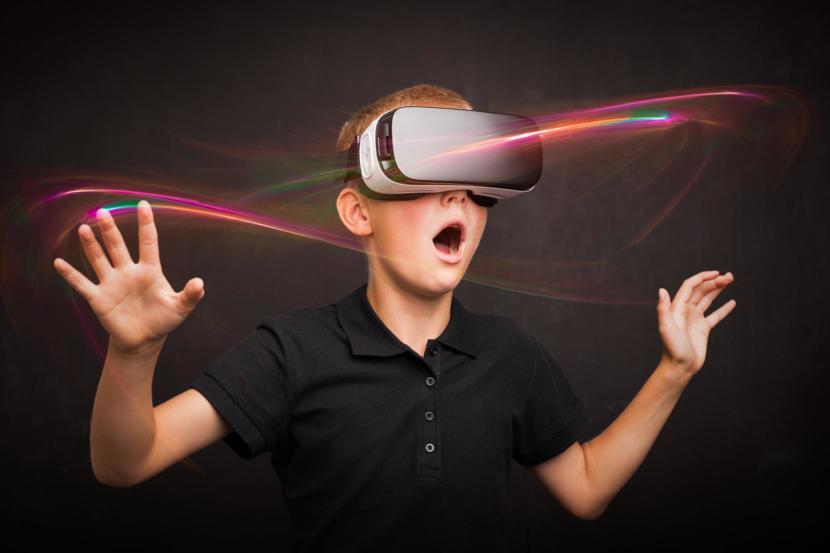Exploring the Benefits of Virtual Reality Rehabilitation in Multiple Sclerosis
Recent research is exploring the benefits of virtual reality (VR) rehabilitation for improving motor and cognitive functions in patients with MS

For individuals living with multiple sclerosis (MS), a potentially disabling central nervous system disease, problems with balance and gait are quite common. Such problems include reduced mobility, independence, and quality of life.
Recent research is exploring the benefits of virtual reality (VR) rehabilitation for improving motor and cognitive functions in patients with MS. VR is a computer-generated experience that takes place within a virtual environment and allows the user to interact with that environment through auditory and sensory sensations. The environment can be similar to the real world or it can be completely imaginary, creating an experience unlike that of the ordinary physical reality.
“Studies suggest that VR can produce benefits in balance, gait, and mobility in persons with MS, and might also have some cognitive benefits — most studies have shown it to be better than no intervention, but not necessarily superior to conventional gait training or physical therapy” said Barbara S. Giesser, Professor of Neurology at the University of California and Clinical Director of the MS Program at the University. In addition, VR has proven to enhance conventional locomotor training, a type of therapy that aims to improve and recover walking motion through challenged practice and lower extremity weight bearing activity.
VR – a growing vertical in healthcare
The role of VR in healthcare has been studied throughout the years. Now, new and emerging data aims to identify the efficacy of this ground-breaking technology in the field of MS -
- According to researchers who published a 2018 review and analysis in the journal Clinical Rehabilitation, VR has the potential for high-intensity, multi-sensorial feedback training. All throughout the month of February, the researchers analyzed randomized controlled trials and quasi-randomized clinical trials that focused on VR training for the improvement of problems with both gait and balance in patients with MS.
Based on the evidence gathered from 9 randomized controlled trials and 2 clinical trials, with a total of 466 individuals with MS (65.8% of whom were women), the researchers found no significant differences for VR training in comparison to that of conventional training. As a result, the findings on VR training were regarded as inconclusive. “[This] meta-analysis supports that virtual reality training could be considered at least as effective as conventional training and more effective than no intervention in improving balance and gait abilities in patients with multiple sclerosis” concluded the researchers.
- A few years earlier, a 2016 systematic review examined a total of 10 studies on the potential value of VR for MS. The researchers found that VR helped to improve balance, walking, as well as arm movement and control in the participants with MS involved in the studies.
There was another study which examined the effects of VR training using functional electrical stimulation together with passive robotic support. The study aimed to improve upper limb function in 5 patients with MS and involved a total of 18 one-hour sessions throughout a period of two and a half months. At the end of the study, the researchers noticed significant improvements in reaching accuracy, as well as reduced impairment in the proximal arm. The intervention was considered to be well-tolerated and reported no increase in muscle weakness.
- A study from 2013 examined a VR-based telerehabilitation program as an alternative treatment method to conventional physical therapy. Over the course of 10 weeks, the experimental group received 20-minute monitored VR sessions via videoconference 4 times per week using the Xbox 360 Kinect system. The control group, on the other hand, received 40-minute physiotherapy sessions 2 times per week. According to the researchers involved in the study, the VR-based telerehabilitation program was found to “optimize the sensory information processing and integration systems necessary to maintain…balance and postural control.”
A medium’s ability to give back what MS has taken
VR involves the combination of head-mounted google screens, audio and visual effects, as well as haptic sensations to create an immersive environment where the user can explore, move around, and interact with the stimulations.
EMD Serono, Canada - a biopharmaceutical business based in Ontario - has launched a 10-minute VR program called “MS from the Inside Out”. It allows users who use head-mounted VR googles to briefly experience what patients with MS go through on a daily basis. The program aims to raise awareness of the disease and its complex symptoms by allowing users to gain insight into the journey that an individual living with MS faces.
EMD Serono is dedicated to furthering education on MS for both individuals living with the disease and their loved ones. With the launching of this revolutionary tool, they hope to gain a better understanding of MS and further raise awareness on the impact of this unpredictable disease.
A ‘literal’ eye-opener
In addition to the benefits of VR as seen through the outcomes of conducted studies, there are also several other benefits in favor of VR rehabilitation in MS.
While both outpatient and inpatient rehab programs were designed to help improve these and other outcomes in this patient population, some patients with MS may not have access to such programs for a variety of reasons. Others may even feel unmotivated to engage in conventional training, thereby highlighting the need for alternate training methods. “One of the main advantages of VR is that it can be delivered at home or other nonclinic setting via computer, and thus may be a very appropriate modality for patients who cannot access a physical therapist or trainer in person. Also, a patient may be more motivated to use VR (ie, play a game) than participate in conventional therapy or exercise” said Dr. Giesser.
For the time being, research on virtual reality and its impact on rehabilitation in MS is still in the early stages. Future studies should include large randomized controlled trials using clear protocols in order to pinpoint which protocols are most effective and which types of VR training are most beneficial for specific impairments. “You can research MS, you can discuss MS, you can make its treatment your life’s work, but when you experience this, it brings a whole new level of understanding” said Dr. Daniel Selchen, Director of the MS Clinic at St. Michael’s Hospital in Toronto, Canada.
References:
- https://www.neurologyadvisor.com/multiple-sclerosis-advisor/vr-virtual-balance-gait-rehabilitation-multiple-sclerosis/article/764134/
- https://www.neurologyadvisor.com/multiple-sclerosis/multiple-sclerosis-rehabilitation-training-virtual-reality/article/805318/
- https://multiplesclerosisnewstoday.com/2017/06/08/virtual-reality-program-ms-from-inside-out-helps-others-sample-life-with-multiple-sclerosis/
- https://vrroom.buzz/vr-news/trends/understanding-multiple-sclerosis-virtual-reality






